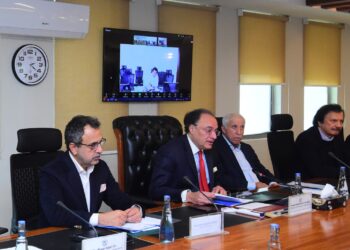(Regarding NEPRA’s Blanket Commercial Classification of Cold Storage Facilities)
In a time when governments worldwide are prioritizing food security, reducing wastage, and enhancing export capabilities, the recent actions of the incumbent NEPRA Chairman stand in stark contrast to these global and national goals. By insisting on a blanket classification that designates all cold storage facilities as “commercial”—regardless of their industrial functions—the Chairman is discouraging investment and modernization in an industry critical to Pakistan’s economic well-being and food security.
A Setback for Food Security and Investment
This blanket classification undermines the Government of Pakistan’s own efforts to strengthen the national cold chain and attract both foreign and domestic investment into the sector. Significant investments have already been made in industrial-scale cold storage operations under the Ministry of National Food Security’s “Cool Chain Industry” initiative, aimed at expanding modern cold chain infrastructure. By imposing a commercial tariff on these specialized facilities, NEPRA’s decision makes it increasingly difficult for operators to remain viable, let alone attract future investment.
Moreover, global financial institutions and donor agencies, such as the International Finance Corporation (IFC) and the World Bank, have shown keen interest in supporting projects that strengthen Pakistan’s capacity to reduce food wastage, improve export readiness, and ensure food security. NEPRA’s classification not only jeopardizes the viability of current operators but also undermines the confidence of these international institutions. It signals to potential investors and donors that Pakistan may not be committed to creating the enabling environment needed to develop a robust, industrial-level cold chain.
Misunderstanding the Industrial Value Chain
The Chairman’s position is based on the misconception that all cold storage units merely serve as intermediaries between wholesalers and retailers. This overlooks the fact that some cold storage operations are deeply integrated into industrial supply chains, handling pharmaceuticals, meat, seafood, fruit concentrates, and other sensitive, high-value products. These facilities do more than simply store goods—they engage in processing, quick-freezing, packing, labeling, and repacking, often at industrial scales.
These value-adding interventions are essential for:
Ensuring goods meet international export standards
Completing manufacturing cycles in various food and pharmaceutical industries
Safeguarding product quality to meet health and safety regulations
Without these processes, many goods could not be exported or integrated into the next stage of industrial manufacturing. Domestic manufacturers, in particular, depend on such facilities to handle industrial-scale volumes, not commercial or retail quantities.
Applauding the Dissenting NEPRA Board Members
We recognize and applaud the two dissenting NEPRA board members who understand the strategic importance of these facilities to Pakistan’s food security, economic stability, and export revenue. Their willingness to differentiate between genuinely industrial cold chain operations and purely commercial storage demonstrates foresight, a firm grasp of global supply chain realities, and an appreciation of how most countries classify advanced cold storage as an industrial process.
Additionally, this blanket classification directly contradicts the Honorable Prime Minister’s decision to declare warehousing and logistics an industry—an effort aimed at fostering growth, job creation, and export diversification. As a critical sub-sector of logistics, cold storage plays a pivotal role in the safe handling and preservation of goods, particularly in export-oriented industries. Categorizing these facilities as purely commercial ignores their industrial functions and undermines the Prime Minister’s vision to strengthen Pakistan’s competitive edge and promote the “blue economy.”
Risk of Lower Standards and Malpractices
One of the most troubling consequences of imposing a commercial tariff on industrial cold storage facilities is the risk of compromising standards and leading to cost-cutting measures—or worse, malpractices. Faced with unsustainable tariffs, operators may be forced to cut corners on quality controls, safety protocols, and regulatory compliance. This can result in:
Compromised Food Safety: Poor temperature control or reduced maintenance could increase contamination risks and spoilage, jeopardizing both local consumers and export markets.
Regulatory Violations: Desperate operators may bypass essential certifications or procedures, undermining Pakistan’s credibility in food and pharmaceutical exports.
Loss of Investor Trust: If the sector gains a reputation for substandard practices, new and existing investors may withdraw, further curtailing Pakistan’s economic potential.
An ill-considered tariff regime does not merely raise costs—it risks pushing once-compliant facilities into subpar operations, damaging Pakistan’s reputation and hindering its ambitions in global markets.
A Call for Action
The cold storage industry calls on the Government of Pakistan, relevant ministries, and NEPRA to reconsider this blanket classification. A more nuanced approach—one that distinguishes and supports cold storage facilities functioning as industrial processing units—is vital if Pakistan aims to:
Improve food security and reduce wastage
Enhance export capabilities and generate valuable foreign exchange
Attract and retain foreign direct investment (FDI) in the cold chain sector
Modernize in line with global best practices in logistics and supply chain management
By maintaining a one-size-fits-all classification, NEPRA has discouraged modernization, jeopardized millions of dollars in investments, and placed Pakistan at a disadvantage in the global competition for food security and export excellence. The Chairman’s position undermines the country’s broader goals and dismisses the commendable efforts made by both the public and private sectors to build a robust, industrial cold chain infrastructure.
We respectfully urge the relevant authorities to recognize the industrial scope of these cold storage facilities and reinstate policies that foster investment, innovation, and modernization in this critical sector.
End















